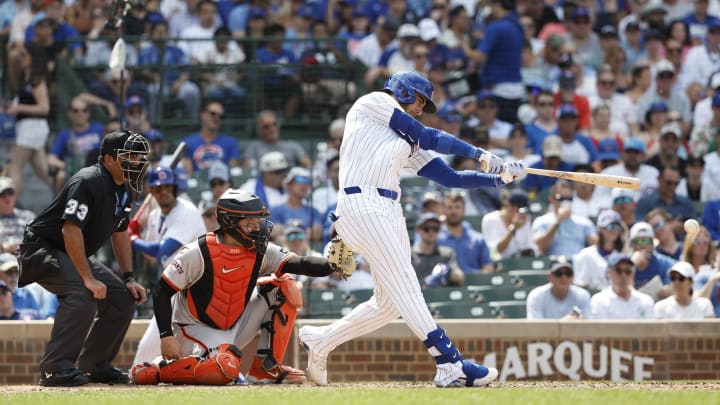Chicago Cubs Urged to Trade Away Pieces at MLB Trade Deadline

The Chicago Cubs had a disappointing first half of the season. 47-51 on the year, the Cubs are 8.5 games out in the National League Central and sit in last place. Entering the campaign, the expectation was for them to at least finish top-two in the division.
That hasn't been the case, and because of that, there's a chance that changes could be made. They're just 3.5 games out of the third Wild Card spot, which makes things even more difficult, but it's certainly noteworthy.
If Chicago comes out of the All-Star break and puts together a hot stretch, they could find themselves in a position to make the postseason.
They haven't proven that they could put together said stretch over an extended period of time, but their 7-3 record heading into the break was as promising as anything has been this year.
It's not guaranteed that they'll play that way coming out of the break, but they have an opportunity to do so if they play their game.
In the event that they don't come out of the break playing well, the Cubs should sell. The question then becomes who they should trade and what type of value they have around Major League Baseball.
Joel Reuter of Bleacher Report shared the same idea, writing that Chicago should sell every short-term player with value at the deadline.
"Do the Cubs even have any tradeable pieces? The uncertainty of a $27.5 million player option for next year already made moving Cody Bellinger difficult to navigate, and that was before he was sidelined with a fractured finger.
"Beyond that, veteran reliever Héctor Neris and swingman Drew Smyly might be the closest thing they have to a trade chip."
Cody Bellinger's contract will worry teams, and rightfully so, but it's tough to imagine a scenario where a contending team doesn't want a proven professional who's played well in big moments.
The same could be said for Hector Neris, who, despite struggling for much of the season, was a big part of the Houston Astros bullpen the past two seasons when it mattered most.
If they can get prospects to better their farm system, it might not be the worst idea. At the very least, it'd give the front office more pieces to work with in the offseason as they could look to retool around the players they don't trade at the deadline.
Whichever direction they pick, the right one has to be made. This is an important deadline that needs to give the team a clear outlook on the future.
